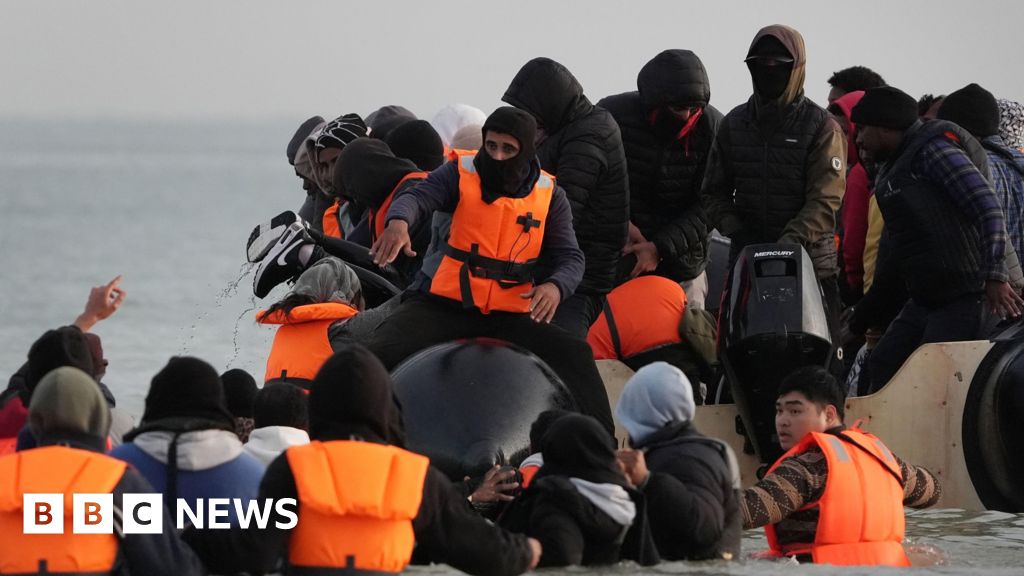Understanding the Early Impact of New Small Boat Sanctions on Gang Leaders
The introduction of new small boat sanctions has significant implications for gang leaders involved in illegal migration activities. These sanctions aim to curb the use of small vessels for transporting individuals across borders, particularly in areas facing immigration challenges. This article will explore the ramifications of these sanctions on gang operations and the broader context of immigration enforcement.
What Are Small Boat Sanctions?
Small boat sanctions are measures implemented by governments to combat the illegal transportation of migrants across waterways. These sanctions target individuals and organizations that facilitate illegal crossings, impacting various aspects of their operations:
- Financial Restrictions: Sanctions often include freezing assets and prohibiting financial transactions for those involved in smuggling activities.
- Legal Consequences: Individuals found violating these sanctions may face criminal charges, leading to imprisonment and heavy fines.
- Operational Challenges: Gang leaders may find it increasingly difficult to orchestrate crossings as surveillance and enforcement efforts intensify.
Impact on Gang Leaders and Their Operations
The new sanctions are expected to disrupt the operations of gang leaders who rely on small boat crossings for profit. With increased scrutiny and enforcement, these leaders may encounter several challenges:
- Increased Risk: The likelihood of interception by law enforcement agencies rises, making it riskier for gang leaders to engage in smuggling operations.
- Loss of Revenue: Financial sanctions can lead to significant losses, as gangs rely on the fees paid by migrants for transport.
- Shifts in Tactics: In response to sanctions, gang leaders may adapt by seeking alternative methods for transporting migrants, potentially leading to more dangerous routes.
The Broader Context of Immigration Enforcement
These sanctions are part of a larger strategy by governments to manage immigration. With the rise in small boat crossings, authorities are increasingly focused on tightening borders and implementing measures to deter illegal immigration. This environment reflects ongoing debates about immigration reform and security.
Key Considerations Include:
- Public Safety: The need to protect communities from the potential dangers associated with unregulated migration.
- Humanitarian Concerns: Balancing enforcement with the need to support individuals fleeing violence and persecution.
- International Cooperation: Working with other nations to address the root causes of migration and the role of transnational gangs.
Recent Developments in Immigration Policy
As part of ongoing immigration reform discussions, various policies are being implemented to address issues related to small boat crossings. Notable developments include:
- USCIS Office Locator: Individuals seeking information about their immigration status can utilize the USCIS office locator for assistance.
- Advance Parole News: Updates on advance parole policies provide insight into temporary travel for individuals with pending immigration cases.
- Immigration Abbreviations: Understanding terms like “DACA” and “ICE” is essential for navigating the immigration landscape.
Conclusion: The Future of Gang Operations in Light of Sanctions
The new small boat sanctions represent a critical step in the fight against illegal migration facilitated by gangs. As these sanctions take effect, we can expect to see significant shifts in gang operations and strategies. While enforcement measures are necessary for maintaining security, it is crucial to consider the humanitarian aspects of immigration and the need for comprehensive reforms.
In this ever-evolving landscape of immigration policy, staying informed about Portugal immigration news, Texas border patrol jobs, and immigration news in Colorado will be essential for understanding the broader implications of these changes. As we move forward, the focus must remain on creating a balanced approach that ensures public safety while addressing the needs of vulnerable populations seeking refuge.










